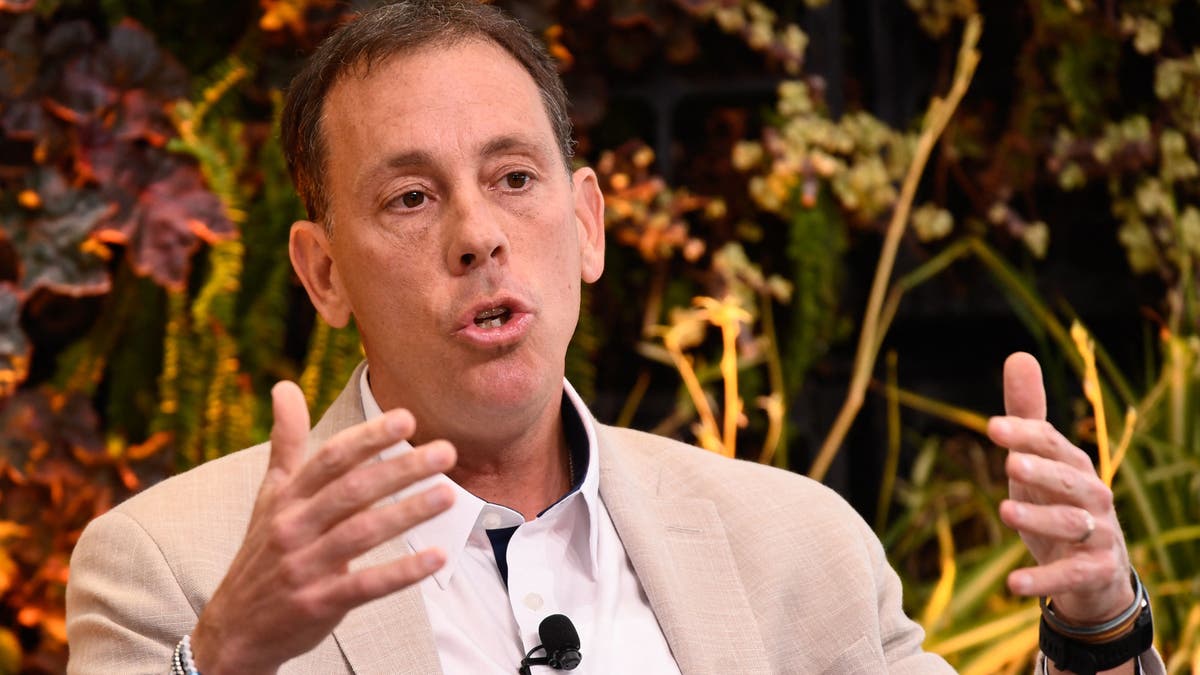White House defends Disinformation Governance Board amid backlash
Fox News White House correspondent Peter Doocy discusses Biden’s abysmal midterm poll numbers amid backlash against his disinformation board on ‘Special Report.’
"Common Sense" Substack journalist Bari Weiss confronted the bosses of major media outlets about their failure to admit past mistakes that only fuel distrust among Americans.
Weiss appeared in a panel discussion on Tuesday at the Milken Institute's Global Conference, sitting alongside The Atlantic editor-in-chief Jeffrey Goldberg, MSNBC president Rashida Jones and Axios co-founder and CEO Jim VandeHei.
The panel, titled "Adapt or Die? News Media at a Crossroads," discussed the modern challenges the media industry faces, efforts to broaden audiences being among them.
Goldberg lamented on the effort to "reach the people who can't be reached," suggesting that 25-35% of Americans "don't want to hear our COVID reporters" and refuse to believe how vaccines work.
"They're ideologically- almost theologically committed not to believe it. And the problem with that question that I get is that I don't know the answer," Goldberg said. "It's a problem of cognition. It's a problem of reality. It's a psychiatric problem. It's an enormous cultural problem. And I don't know- and that's going to be the thing that, you know, you combine these two things, and you can see a democracy in trouble."

Jeffrey Goldberg, Editor-in-Chief, The Atlantic, speaks during the Milken Institute Global Conference on May 3, 2022 in Beverly Hills, California. (Photo by Patrick T. FALLON / AFP) (Photo by PATRICK T. FALLON/AFP via Getty Images)
Josh Barro, the "Very Serious" Substack writer and moderator of the panel, took a question from the audience about the Biden administration's Disinformation Governance Board, which Weiss mocked as the "Ministry of Truth." Barro asked Weiss if she agreed with Goldberg.
"That people who, you know, distrust the CDC or whatever have psychiatric problems?" Weiss said, swiping Goldberg's comments.
The Atlantic boss attempted to clarify his "psychiatric" comments, suggesting he meant the people who believe the "QAnon" conspiracy theory belongs in that category while a larger group of Americans believe the 2020 presidential election was stolen.
"There's a- very disproportionately on the right, a willingness to believe in various on-their-face absurd conspiracy theories. And a lot of people in the media have been sort of trying to like, grab people by the shoulders and yell at them over and over again that those things are not true. And often, not always, the media is correct when they are saying that those things are not true," Barro led the discussion. "It doesn't seem to me like that has been very productive in terms of either informing people better or improving the media's image."
"No, because often the people that are trying to grab people by the shirt lapels and tell them that they're crazy in that it isn't true also tried to tell us that, you know, that Donald Trump conspired with Russia to steal the election, which turned out to basically not be true. Basically, not be true, guys. Let's be honest," Weiss responded. "Do you know how many resources at a place like the New York Times and the Wall Street Journal went into that story? I mean, there's a reason that people are skeptical of the legacy press. And I think it's important to acknowledge."

Bari Weiss, Editor, Common Sense, speaks during the Milken Institute Global Conference on May 3, 2022 in Beverly Hills, California. ( PATRICK T. FALLON/AFP via Getty Images)
"The way to repair it I don't think is by shaking people and say, 'You're so crazy that you don't trust whatever the New York Times, the CDC,' we could go on and on and on, right? The way to do it is by just trying to do a better job, I think. By just trying to actually report about the world as it actually is. But a lot of the people I think, who are trying to wake people up about it themselves can't look in the mirror and apologize for things that they've gotten wrong that have created or at least contributed to, let's say, the disintegration and the deterioration of trust," Weiss said.
SEVERAL NEW YORK TIMES STAFFERS AGREED WITH BARI WEISS' SCATHING RESIGNATION LETTER, REPORT CLAIMS
When asked if she agreed with Weiss, MSNBC's Jones largely sidestepped her remarks, completely avoiding the comments about the Russia collusion narrative that her network championed for the first two years of the Trump presidency.
"There's only so much you can do other than being consistent in telling the truth. There's only so much we can do to kind of dispel people's opinions that aren't based," Jones said. "In fact, I think as journalists, our focus needs to be on, you know, how do we consistently tell the truth, you know, similar to what Bari said, how do we continue to deliver the facts and do as good of a job at that."

Rashida Jones, President, MSNBC, speaks during the Milken Institute Global Conference on May 3, 2022 in Beverly Hills, California. (Photo by Patrick T. FALLON / AFP) (Photo by PATRICK T. FALLON/AFP via Getty Images) ( PATRICK T. FALLON/AFP via Getty Images)
VandeHei, on the other hand, said part of what Weiss said "resonated" with him.
"We need a little humility, right? There's things that we got wrong as an institution and so you try to get it right," VandeHei said.
The Axios boss explained how his staff largely abide by company guidance preventing them from "popping off ideologically on Twitter" in order to "earn the trust of the persuadables."
BARI WEISS: WOKE CULTURE IS DOMINATING OUR LIVES – HERE ARE 10 WAYS TO FIGHT BACK
"I'll use a good example. So Jonathan Swan is one of our political writers. He just won the White House award for his work covering Donald Trump. There was nothing hysterical about his coverage. He's never on Twitter saying, Look at how stupid Trump is! Look at how dishonest Trump is!' He just did terrific reporting that showed you exactly what was happening behind the scenes so you can make your own damn conclusion. I don't need him to go on Twitter and being like, 'You're so dumb if you don't see how dumb he is.' Like, no wonder they think you're condescending. Stop doing that!"

Jim VandeHei, Co-Founder and CEO, Axios, speaks during the Milken Institute Global Conference on May 3, 2022 in Beverly Hills, California. (Photo by Patrick T. FALLON / AFP) (Photo by PATRICK T. FALLON/AFP via Getty Images) ( PATRICK T. FALLON/AFP via Getty Images)
VandeHei went on to blame Twitter for being largely responsible for fueling distrust in the media, saying how journalists who once kept their political ideologies to themselves "act like they were drunk at a bar in terms of offering their opinion about the two political parties."
"And they wonder why people don't trust them and think they're ideological. That's not your job!" VandeHei said. "If you want to be Rachel Maddow, be Rachel Maddow... If you're a reporter, you made the deal to not get paid very well, to work super hard and have people hate you. Do it with pride! Do it the way you're supposed to do it. And I think if we could do those things, then you start to earn the trust of people."
CLICK HERE TO GET THE FOX NEWS APP
He continued, "75% of people have never been on Twitter. The amount of groupthink and stupidity that happens on that cesspool all day, every day- and I know there's nice things about Twitter, I'm on it too, and I look at it but like for the most part, it's just so much groupthink garbage. And if you just do your job, better things will happen."





















